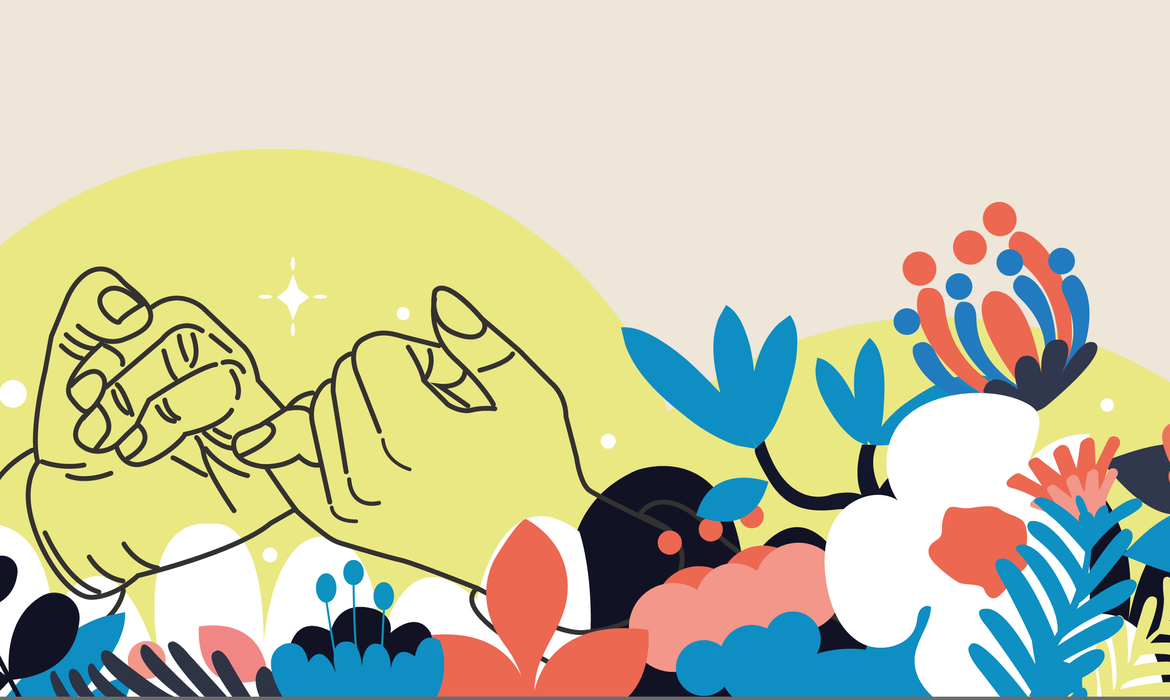Could tapping into this effective coaching technique help strengthen the bond you have with your loved ones?
Years ago, I would blame the world for the fact that I didn’t have people around when I needed them. I always thought everything was everyone else’s fault, and I didn’t value my friendships. But I misunderstood what it really meant to be a friend, and I was a rubbish friend.
It’s a natural instinct to connect and, as we have evolved through generations, we naturally want to be amongst others. Neuro-linguistic programming (NLP) is the art and science of understanding how your mind works, why it works that way, and how you communicate with yourself and your outside world. NLP helps you to understand how you view your world, your relationships, and how to communicate better. And when I learnt NLP, it helped me to notice all the friendships I did actually have that I hadn’t noticed before – and it impacted the way I show up for the people I deeply care about.
Here are a few ways NLP helped me to change the way I think, and tips that will help you to be a better friend, and support others when they need you the most.
1. Respect for the other person’s model of the world
This comes from the presuppositions of NLP and the mindsets of NLP – it’s the assumptions and beliefs that we have. Our model of the world is as unique as we are; everyone sees the world differently. Respecting that is really important.
2. Take personal responsibility
The saying ‘happiness is an inside job’ really comes into play here. We have to remember that if our friends do not respond to us, or call us back, it usually is nothing personal, it’s just that they are busy, didn’t see it, or meant to return the call/message but just haven’t gotten around to it yet. By using the NLP mindset, you can take responsibility to be the one to follow up on messages, call them back, and follow up with the people you haven’t spoken to in some time.
3. Communicate effectively
If you’re in a relationship, whether it’s a friendship or a romantic relationship, you may not be happy, and you may put blame on them. So they’re the reason you’re not happy, because ‘they’re doing this and that’. Now, the chances are, they have no idea what you’re thinking if you don’t communicate with them effectively. When we understand that happiness is an inside job, and take the initiative to communicate where we’re at with our loved ones, we can have a much better quality of relationship.
4. Ensure that you are not projecting
In NLP, this is when you think something about yourself (which you may not really be aware of) and so you act in certain ways or notice things in your life that make you feel a certain way. Often it is in a negative light, because you may have some limiting beliefs you are telling yourself about who you are. It’s also possible that you are projecting the way you think and feel about yourself onto your relationships. Be aware of this and you may be able to nip it in the bud.
5. Understand someone’s love strategy
We all have different strategies that we run in terms of the way that we feel loved, and how we feel wanted and heard. Everything we do is in an order and sequence of behaviours. So, we want to understand what our friends’ love strategies are so we can ensure we meet them if they ever need some extra support.
If you’re a visual person, you have to see that you feel loved. For example, buying you flowers, giving you a gift, seeing messages from friends. If you are auditory this means you want to hear the words of encouragement. If you are kinesthetic this means that you prefer hugs and affection. When you know this about your friends, you can really support them the way they need you to.
When we take stock of everything, it all boils down to communication, really. Communicating with your loved ones and yourself in the deepest way possible ensures that you are supporting both yourself and your friends in feeling heard and respected.
Rebecca Lockwood is a neuro-linguistic programming, hypnosis, Time Line Therapy®, positive psychology, and breakthrough coach trainer.
To learn more about NLP and to work with a professional, visit Life Coach Directory.

